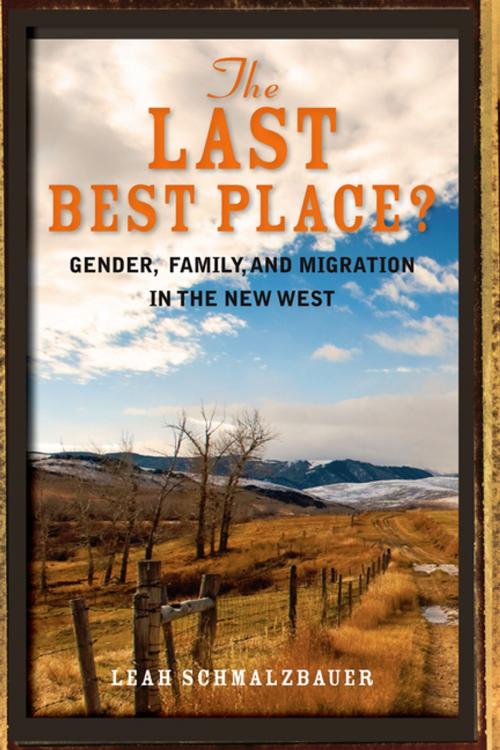The Last Best Place?
Gender, Family, and Migration in the New West
Nonfiction, Social & Cultural Studies, Social Science, Cultural Studies, Emigration & Immigration| Author: | Leah Schmalzbauer | ISBN: | 9780804792974 |
| Publisher: | Stanford University Press | Publication: | August 27, 2014 |
| Imprint: | Stanford University Press | Language: | English |
| Author: | Leah Schmalzbauer |
| ISBN: | 9780804792974 |
| Publisher: | Stanford University Press |
| Publication: | August 27, 2014 |
| Imprint: | Stanford University Press |
| Language: | English |
Southwest Montana is beautiful country, evoking mythologies of freedom and escape long associated with the West. Partly because of its burgeoning presence in popular culture, film, and literature, including William Kittredge's anthology The Last Best Place, the scarcely populated region has witnessed an influx of wealthy, white migrants over the last few decades. But another, largely invisible and unstudied type of migration is also present. Though Mexican migrants have worked on Montana's ranches and farms since the 1920s, increasing numbers of migrant families—both documented and undocumented—are moving to the area to support its growing construction and service sectors.
The Last Best Place? asks us to consider the multiple racial and class-related barriers that Mexican migrants must negotiate in the unique context of Montana's rural gentrification. These daily life struggles and inter-group power dynamics are deftly examined through extensive interviews and ethnography, as are the ways gender structures inequalities within migrant families and communities. But Leah Schmalzbauer's research extends even farther to highlight the power of place and demonstrate how Montana's geography and rurality intersect with race, class, gender, family, illegality, and transnationalism to affect migrants' well-being and aspirations. Though the New West is just one among many new destinations, it forces us to recognize that the geographic subjectivities and intricacies of these destinations must be taken into account to understand the full complexity of migrant life.
Southwest Montana is beautiful country, evoking mythologies of freedom and escape long associated with the West. Partly because of its burgeoning presence in popular culture, film, and literature, including William Kittredge's anthology The Last Best Place, the scarcely populated region has witnessed an influx of wealthy, white migrants over the last few decades. But another, largely invisible and unstudied type of migration is also present. Though Mexican migrants have worked on Montana's ranches and farms since the 1920s, increasing numbers of migrant families—both documented and undocumented—are moving to the area to support its growing construction and service sectors.
The Last Best Place? asks us to consider the multiple racial and class-related barriers that Mexican migrants must negotiate in the unique context of Montana's rural gentrification. These daily life struggles and inter-group power dynamics are deftly examined through extensive interviews and ethnography, as are the ways gender structures inequalities within migrant families and communities. But Leah Schmalzbauer's research extends even farther to highlight the power of place and demonstrate how Montana's geography and rurality intersect with race, class, gender, family, illegality, and transnationalism to affect migrants' well-being and aspirations. Though the New West is just one among many new destinations, it forces us to recognize that the geographic subjectivities and intricacies of these destinations must be taken into account to understand the full complexity of migrant life.















